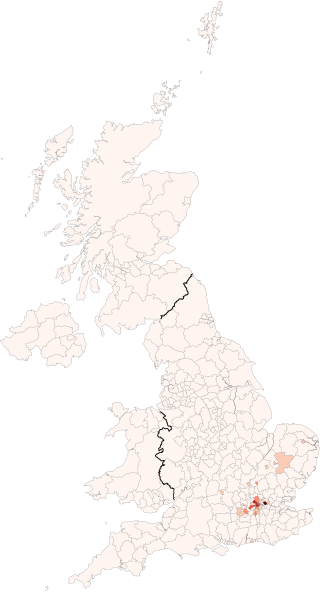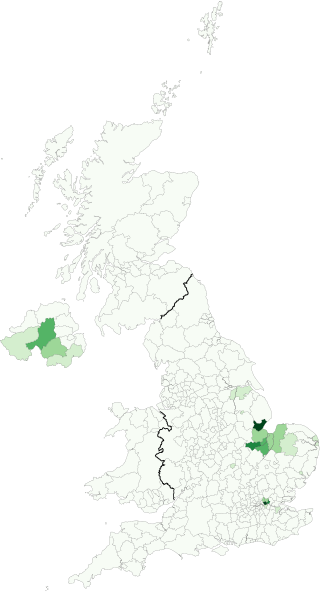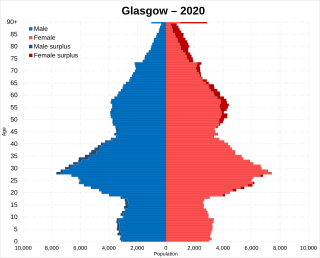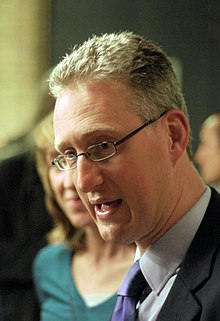
Italians in the United Kingdom, also known as Italian Brits are citizens and/or residents of the United Kingdom who are fully or partially of Italian descent, whose ancestors were Italians who emigrated to the United Kingdom during the Italian diaspora. The phrase may refer to someone born in the United Kingdom of Italian descent, someone who has emigrated from Italy to the United Kingdom, or someone born elsewhere, who is of Italian descent and has migrated to the UK. More specific terms used to describe Italians in the United Kingdom include: Italian English, Italian Scots, and Italian Welsh.

Australians in the United Kingdom, or Australian Britons, include Australians who have become residents or citizens of the United Kingdom. The largest segment of Australia's diaspora of 1 million resides in the United Kingdom.

French migration to the United Kingdom is a phenomenon that has occurred at various points in history. The Norman Conquest of England by William the Conqueror in 1066 resulted in the arrival of Normans, while in the 16th and 17th centuries Protestant Huguenots fled religious persecution to East London. Other waves are associated with monasticism, particularly post-conquest Benedictines and Cistercians, aristocracy fleeing the French Revolution, expulsion of religious orders by Third Republic France, and current expats.

Filipinos in the United Kingdom are British citizens or immigrants who are of Filipino ancestry.

Spaniards in the United Kingdom are people of Spanish descent resident in Britain. They may be British citizens or non-citizen immigrants. In the 2021 census for England and Wales, 81,150 people self-identified as ethnic Spanish.
East Asians in the United Kingdom are East Asians living in the United Kingdom. They have been present in the country since the 17th century and primarily originate from countries such as China, Hong Kong, Japan, South Korea and Taiwan. They are called "East Asian" or "Oriental", although – dependent upon the context – the use of the term "Oriental" might be considered by some to be derogatory or offensive. In the 2001 British census, the term Chinese or Other is used.
Hungarians in the United Kingdom include Hungarian-born immigrants to the UK and their descendants, of whom there are a substantial number. Since Hungary joined the European Union in 2004, the UK's Hungarian population has grown significantly. Although official ONS estimates are that there were about 98,000.
British Iraqis are British citizens who originate from Iraq.
Zimbabwean Britons are British people who were born in Zimbabwe or can trace their ancestry to immigrants from Zimbabwe who emigrated to the United Kingdom. While the first natives of the country then known as Southern Rhodesia arrived in Britain in larger numbers from the late-1960s, the majority of immigrants arrived during the 1990s and 2000s. The Zimbabwean community in the UK is extremely diverse, consisting of individuals of differing racial, ethnic, class, and political groups. There are a diverse mix of asylum seekers, professionals, investors, businesspeople, labour migrants, students, graduates, undocumented migrants, and others who have gained British citizenship.
Kenyan migration to the United Kingdom has been occurring for many decades. As a result, many people in the UK were born in Kenya, or have Kenyan ancestry. The majority of Kenya-born people who migrated to the UK are of South Asian extraction.

Singaporeans in the United Kingdom may refer to people who have full or partial Singaporean origin or descent, born or settled in the United Kingdom, or Singaporeans in Britain which are high-income expatriate professionals as well as skilled workers, with many still maintaining close ties with Singapore, especially those who continue to retain Singaporean citizenship while having permanent residency in Britain, as well as students.

Malaysians in the United Kingdom are British citizens who have full or partial Malaysian origin or descent and Malaysian citizens residing in the United Kingdom. The 2001 UK Census recorded 49,886 Malaysian-born people. The 2011 census recorded 62,396 people born in Malaysia living in England, 2,117 in Wales, 4,721 in Scotland and 705 in Northern Ireland. The largest concentrations of Malaysian-born residents were recorded in Greater London and South East England (11,331). The Office for National Statistics estimates that 75,000 Malaysian-born expatriates were residents in the UK in 2017.

Romanians in the United Kingdom refers to Romanian immigrants in the United Kingdom, both citizens and non-citizens, along with British citizens of Romanian ancestry. The number of Romanian-born people resident in the UK has risen from 83,168 at the time of the 2011 United Kingdom census to 557,554 at the time of the 2021 United Kingdom census.

Estonia and the United Kingdom are full members of the Council of Europe and NATO.

Lithuanians in the United Kingdom include individuals born in Lithuania who have migrated to the UK, among them Lithuanian citizens of Russian descent and Polish Lithuanian citizens, as well as their British-born descendants. The 2011 UK Census recorded 95,730 Lithuanian-born residents in England, 1,353 in Wales, 4,287 in Scotland, and 7,341 in Northern Ireland. The previous, 2001 UK Census, had recorded 4,363 Lithuanian-born residents. The Office for National Statistics estimates that 144,000 Lithuanian-born immigrants were resident in the UK in 2013.
Mongolians in the United Kingdom are a relatively small but fast emerging ethnic group, including both Mongolian expatriates and migrants residing in the UK along with British-born citizens who identify themselves to be of Mongolian national background or descent.
Southeast Asians have lived in the United Kingdom for several centuries, arriving from Southeast Asia and primarily originating from countries and territories such as the Philippines, Malaysia, Indonesia, Burma, Singapore, Thailand and Vietnam.

Glasgow is the most populous city in Scotland and the fourth most populous city in the United Kingdom.

Latvians in the United Kingdom are those born or raised in the UK, or residents, who are of ethnically Latvian descent or originate from Latvia, a country in North-Eastern Europe.
Central Asians in the United Kingdom are Central Asians living in the United Kingdom. They have been present in the country since the 21st century and primarily originate from the countries Kazakhstan, Kyrgyzstan, Tajikistan, Turkmenistan, and Uzbekistan.














